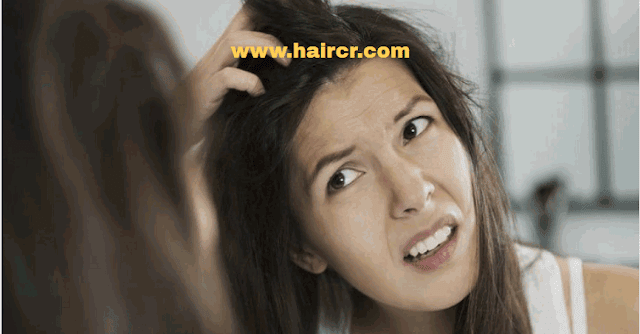Causes Of Dandruff In Hair
Dandruff in hair is a natural process in the regeneration of the scalp, in a certain way normal; We all skip and flake the dead skin of the upper layers of the leather, the so-called epidermis. What happens is that it is a gradual and hardly noticeable process, because it generally occurs in tiny flakes. Thus, the normal thing is to regenerate the epidermis of the body approximately every month.
However, in some people, this dermal regeneration occurs in a more accelerated way, so that larger and more visible scales have formed that jump and remain between the hair strands as whitish plates. It is what we commonly call dandruff. In these people, the dermal regeneration of the leather occurs every two weeks or even weekly, giving an unsightly and unsanitary effect, often false and unfair.
Causes of dandruff in hair
However, dandruff as a phenomenon could be called "problematic", it is not due to a single cause, but its appearance is multifactorial. They can intervene from autoimmune reactive processes to dietary deficiencies, fungal infections and physiological problems, all of them combined. In general, the main causes of dandruff in hair are:- Mycosis due to excess generation of hair sebum: there are people who, due to sweat or outgrowth of the follicles, generate too much fat at the base of the leather. This alkalizes the environment and makes it conducive to the growth of the Malassezia fungus, which under normal conditions does not cause problems and lives on all heads. Now, when it finds a medium rich in fats, it uses them as food to grow excessively. This growth causes irritation, inflammatory redness, and frequent shedding of large flakes of dead skin.
- Pediculosis: the presence of lice or nits that goes unnoticed at first, can be revealed by the abnormal and sudden appearance of dandruff platelets.
- Use of alkaline shampoos: some people use neutral or alkaline shampoos because they have sensitive skin; the problem is that if they have oily hair, they will thus facilitate the action of fungi that create mycoses similar to that of Malassezia and lead to inflammation. It must be clear that dandruff in hair does not occur because the skin of the leather is too dry.
- Zinc deficiency: relates the zinc deficiency with a drop in the immune system, an increase in inflammatory processes and increased production of sebum. All this can cause allergies and dermatitis due to increased mycosis (fungal infection), leading in some cases to dandruff.
- Stress: Stress can also have inflammatory consequences and a weakening of the immune system, leading to mycosis and seborrheic dermatitis.
- Psoriasis: This is rare, but psoriasis, an autoimmune disease, can spread to the scalp and cause flakes of dandruff.
How to avoid dandruff in hair
The single or combined action of the above factors can cause the flakes to be too evident and therefore we are labeled as having dandruff. Now, this is a problem that to a greater extent "affects around 50% of the adult population in the world ".
To combat dandruff in hair, there is a remedy through different anti-dandruff shampoos that are advertised in the media and that can be found in pharmacies. Most are acidic and include zinc, anti-inflammatories, and ketoconazole, an antifungal that eliminates possible mycoses, including Malassezia.
Now, we can combine some of the following natural strategies to see if we can avoid or reduce dandruff in hair without having to change shampoo or buy one that will surely be more expensive:
Wash more frequently: if we have very oily hair due to the fact that we generate a lot of sebum, by washing our hair daily we avoid its accumulation and therefore we steal food from the fungi.
Apply vinegar: regardless of the shampoo we use, we can make white vinegar scrubs after washing to lower the pH of the scalp. We leave it for a few minutes and then we can rinse it with water or leave it and wait for the smell to go away since it is an excellent ecological hair conditioner.
Eat nuts: the aim is to have enough zinc, although nuts can give us many other trace elements that prevent deficiencies and allergies. They are also rich in Omega 3/6 fatty acids, with important anti-inflammatory effects.
Eat more fruits and vegetables: the goal is to strengthen the intestinal flora through plant fiber, their food, and thus avoid allergies and other autoimmune processes.
Eat oily fish more frequently: due to its good proportion of omega 3 and 6 fatty acids.
Avoid stress: easy to say, but no more true that if excessive emotional tension persists, dandruff can remain present no matter how much we apply the above-mentioned strategies. If necessary, we will go to a professional, or we will practice sports or different hobbies and relieve tension, etc.
If neither with these remedies nor with an anti-dandruff shampoo we can make the problem disappear, the best alternative will be to go to the dermatologist.
